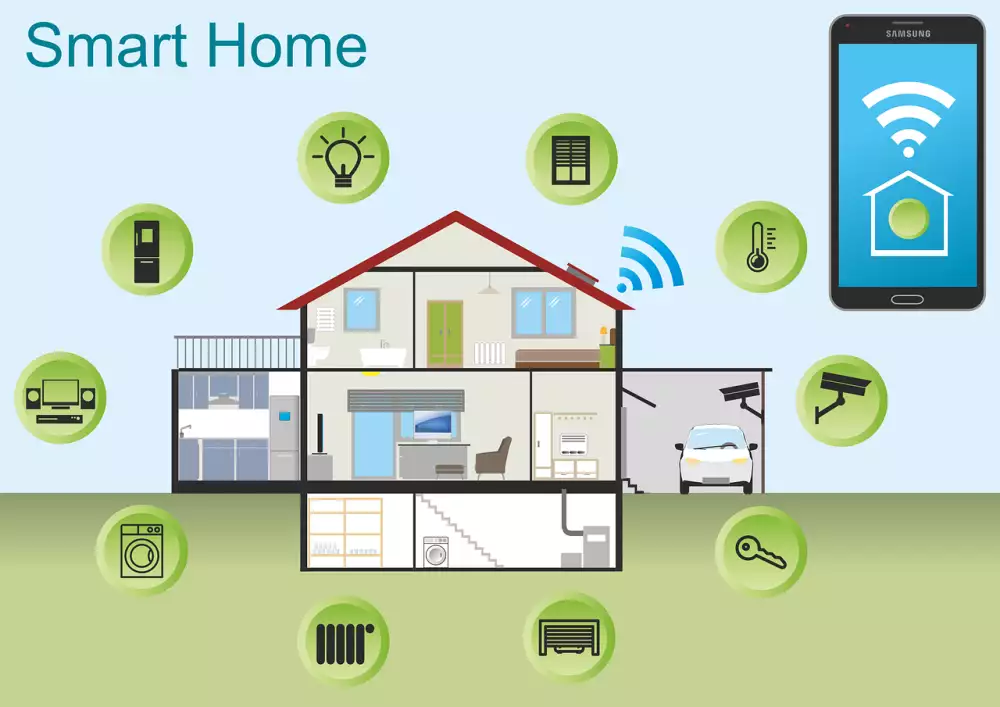Unlocking Convenience: Your Guide to the Best Smart Home Apps

Communication Protocols
Communication protocols are the backbone of any network, providing a common language for devices to understand each other. These sets of rules and standards dictate how data is formatted, transmitted, and received, ensuring seamless communication between various hardware and software components. Imagine them as the traffic signals and road signs of the digital world, guiding data packets to their destinations efficiently and accurately.
Different protocols cater to specific needs, such as TCP/IP for reliable internet communication, HTTP for web browsing, and FTP for file transfers. Each protocol operates at a particular layer within the network architecture, working together to enable complex interactions like online gaming, video streaming, and cloud computing. Choosing the right protocol is crucial for optimal performance, security, and compatibility within a network.
Artificial Intelligence
Artificial intelligence (AI) is the intelligence demonstrated by machines, as opposed to the natural intelligence displayed by humans and animals. Leading AI textbooks define the field as the study of "intelligent agents": any system that perceives its environment and takes actions that maximize its chance of achieving its goals. Colloquially, the term "artificial intelligence" is often used to describe machines (or computers) that mimic "cognitive" functions that humans associate with other human minds, such as "learning" and "problem-solving".
As machines become increasingly capable, tasks considered to require "intelligence" are often removed from the definition of AI, a phenomenon known as the AI effect. For instance, optical character recognition is frequently excluded from things considered
Data Security Concerns
Data is a valuable asset, and like any valuable asset, it needs to be protected. Data security concerns are growing as more and more data is collected, stored, and shared online. Hackers are becoming more sophisticated in their methods, making it more difficult for businesses to protect their data. There are a number of different data security concerns that businesses face, including:
- Data breaches: A data breach occurs when unauthorized individuals gain access to sensitive data. This can happen through a variety of methods, such as hacking, phishing, and social engineering.
- Data leaks: A data leak is similar to a data breach, but it typically occurs when data is accidentally exposed, such as through a misconfigured server or an employee error.
- Data loss: Data loss can occur for a number of reasons, such as hardware failure, software corruption, or natural disasters.
- Data misuse: Even if data is not lost or stolen, it can still be misused. For example, an employee might accidentally share confidential information with the wrong person.
These are just a few of the many data security concerns that businesses face. By being aware of these concerns and taking steps to mitigate them, businesses can help to protect their data and their customers.
Device Compatibility Issues
Device compatibility issues can be a real pain. They pop up when a device, like your smartphone, doesn't play well with another device, software, or network. Think of trying to fit a square peg in a round hole – it just doesn't work!
These issues can stem from outdated software, incompatible hardware, or even network limitations. You might encounter problems like apps crashing, files not transferring properly, or devices not connecting at all.
The good news is that device compatibility issues are often solvable. Updating your software, checking for hardware compatibility before purchasing new devices, and troubleshooting your network connection can often resolve these pesky problems.
Voice Control Integration
Voice control integration is transforming how we interact with technology, and smart homes are at the forefront of this revolution. Imagine controlling your lights, thermostat, and appliances with simple voice commands. With voice assistants like Amazon Alexa and Google Assistant, this is now a reality for many homeowners.
Voice control integration offers unparalleled convenience and accessibility. Instead of fumbling with switches or apps, you can adjust your home environment effortlessly using your voice. This is particularly beneficial for individuals with mobility impairments or those who simply prefer a hands-free approach.
Moreover, voice control enhances home automation by enabling seamless integration between different smart devices. You can create personalized routines and scenes that are triggered with a single voice command. For example, you can say, "Good night," to turn off the lights, lock the doors, and adjust the thermostat.
Automation and Scheduling
Automation and scheduling are essential aspects of efficient operations in many industries. Automation streamlines repetitive tasks, reducing manual effort and the potential for human error. Scheduling ensures that tasks are executed at the right time and in the correct sequence. By combining these two powerful concepts, organizations can optimize their workflows, improve productivity, and enhance overall efficiency. Automation tools can be used to schedule and execute tasks automatically, freeing up human resources for more strategic initiatives. Moreover, scheduling algorithms can analyze data and identify optimal time slots for task execution, considering factors such as resource availability and deadlines.
Energy Management Features
Modern devices often incorporate intelligent energy management features to extend battery life. These features may include:
- dimming the display
- reducing processor speed
- disabling background processes
- switching to power-saving modes
Some devices learn your usage patterns and optimize energy consumption accordingly. For example, your phone might identify frequently used apps and pre-load them in the background, reducing the energy needed to launch them later. These features work behind the scenes, allowing you to enjoy your device without constantly worrying about battery life.
Home Security Applications
Home security applications have revolutionized the way people protect their homes and loved ones. With these apps, homeowners can monitor their property remotely, using their smartphones or tablets. Features may include live video streaming from security cameras, motion detection alerts, and remote control of smart home devices such as door locks and alarms. Some apps offer two-way communication, allowing users to speak directly to someone at their front door through a smart doorbell. By providing real-time information and control, home security applications empower homeowners with peace of mind and enhanced safety measures.
Publikováno: 14. 06. 2024
Kategorie: Technology



